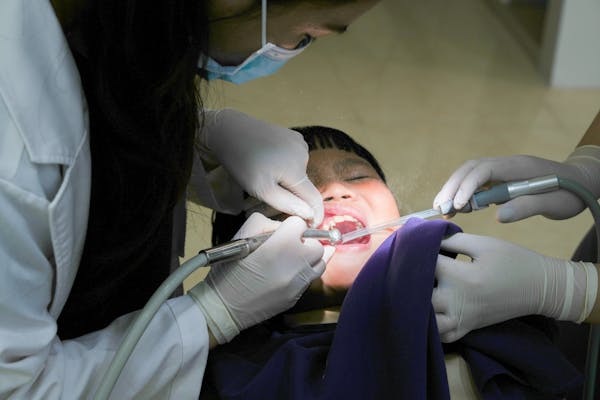Dentist appointments can be a source of anxiety for children, whether it’s their first visit or a routine check-up. These fears can create a lasting negative association with dental care, potentially impacting oral health habits into adulthood. By fostering a positive experience—whether it’s a simple cleaning or a restorative dentistry procedure—parents and caregivers can help children feel more at ease during visits.
Starting Early with Positive Experiences
Introducing your child to the dentist early can make a significant difference. Ideally, the first visit should happen around their first birthday or when their first tooth emerges. Early exposure helps normalize the environment and reduces fear of the unknown.
At home, using simple and friendly language can help set the tone. Calling dentists “tooth helpers” who keep their smiles clean and shiny makes the idea less intimidating. Role-playing can prepare your child by turning a pretend dental check-up into a fun and familiar game. Using a toothbrush or mirror as props can ease them into the idea of an actual visit.
Choosing a Pediatric Dentist
Pediatric dentists specialize in working with children, including those who may feel nervous or anxious. Their offices are often designed with kids in mind, featuring playful decorations, bright colors, and activities to keep children entertained in the waiting area. Beyond creating a welcoming environment, pediatric dentists often excel at explaining procedures in a way that children can understand. For more involved procedures like restorative dentistry, they guide children through each step, making the process feel less overwhelming.
Staying Calm and Supportive
Children are quick to pick up on their parents’ emotions. Remaining calm and relaxed about dental visits helps set a reassuring example. Even a casual comment about discomfort at the dentist can unintentionally spark anxiety in your child.
During the appointment, your presence and encouragement go a long way. If the clinic allows, staying in the room with your child can offer them added comfort. However, letting the dentist build a rapport with your child is also helpful to encourage trust.
Using Distractions and Rewards
Distractions can be effective in keeping children relaxed during dental visits. Bringing a favorite toy, book, or headphones with calming music or shows can make the experience less stressful. Many pediatric dental offices also provide built-in distractions, such as cartoons or colorful decorations, to put children at ease. After the visit, rewards can reinforce a positive experience. Stickers, verbal praise, or even a small treat like a favorite activity can help children associate dental visits with positive outcomes.
Building a Relationship with the Dentist
Regular visits to the same dentist allow children to become familiar with their provider, turning a once-unknown figure into someone trusted. Encourage your child to ask questions and engage with the dentist during appointments. Over time, this relationship fosters comfort and confidence, even during more involved treatments. If restorative dentistry is part of the care plan, familiarity with the dentist helps ease any apprehension. Trust built over time can make these procedures feel less intimidating and more manageable for children.
Empowering Children with Information
For older children, knowledge can help reduce fear of the unknown. Age-appropriate explanations about what happens during a dental visit can provide clarity. Use simple, favorable terms like “cleaning away sugar bugs” instead of words that might sound alarming, like “needle” or “drill.”
Giving your child small choices, such as picking a toothpaste flavor or a post-visit prize, gives them a sense of control over the experience. These little decisions can greatly affect how they feel about their visit.
From Routine Visits to Restorative Dentistry
Creating a positive dental experience for children requires consistent effort, but the results are worthwhile. From introducing early visits to working with a pediatric dentist, these steps help reduce anxiety and build confidence. Whether it’s for routine care or procedures like restorative dentistry, preparing children for each stage of their appointment fosters lifelong healthy habits. A stress-free dental visit today can lead to a brighter attitude toward oral care in the future.
